Related Research Articles
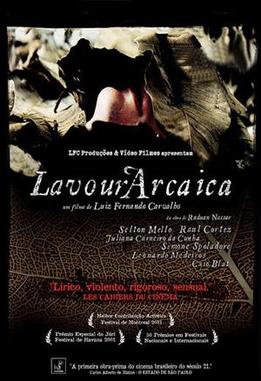
To the Left of the Father is a 2001 Brazilian drama film produced, written, directed and edited by Luiz Fernando Carvalho, based on the novel of the same name by Raduan Nassar. The film follows a man who returns to his father's home after many years and falls in love with his sister. In 2015, the Brazilian Film Critics Association (Abraccine) placed To the Left of the Father among their list of 100 Greatest Brazilian Films of All Time.

Brainstorm is a 2000 drama film directed by Laís Bodanzky based on the autobiographical book Canto dos Malditos by Austregésilo Carrano Bueno. The film was made through a partnership between Brazilian and Italian studios and starred Rodrigo Santoro, Othon Bastos and Cassia Kiss. The film tells the story of Neto, a young man who is admitted to a psychiatric hospital after his father discovers he is a user of marijuana. There, Neto is subjected to abuse. In addition to abuse by psychiatric hospitals, the film deals with the issues of drugs and relationships between fathers and sons.
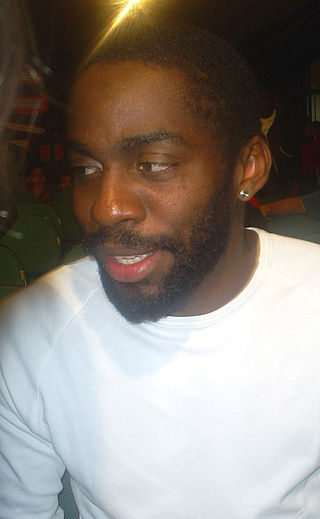
Luís Lázaro Sacramento Ramos is a Brazilian actor, television presenter, director, writer, and voice actor. He started his acting career with the Flock of Olodum Theater group, in Salvador, and is best known for his portrayal of João Francisco dos Santos in the 2002 film Madame Satã. In 2007, he was nominated for the 35th International Emmy Awards for Best Actor for his role in Cobras & Lagartos.

Matheus Nachtergaele is a Brazilian actor, director, and screenwriter.

Entranced Earth is a 1967 Brazilian Cinema Novo drama film directed by Glauber Rocha. It was shot in Parque Lage and at the Municipal Theatre of Rio de Janeiro. The film is an allegory for the history of Brazil in the period 1960–1966.

Andrew "Andrucha" Waddington is a Brazilian film director, producer, and screenwriter.
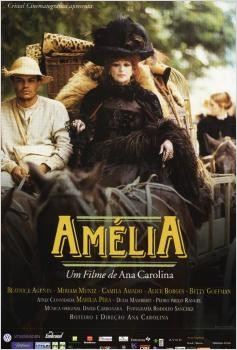
Amélia is a 2001 Brazilian comedy-drama film directed by Ana Carolina, inspired by the visit of French actress Sarah Bernhardt to Brazil, in 1905. In the film, the actress is under a professional and personal crisis, but is induced by her Brazilian housekeeper, Amélia, to start performing in Rio de Janeiro. However, the actress is forced to live with the exotic sisters of Amélia.
The 1st Grande Prêmio Cinema Brasil ceremony, presented by the Ministry of Culture of Brazil, honored the best audiovisual productions of 1999. It took place on February 12, 2000, at the Palácio Quitandinha in the city of Petrópolis, Rio de Janeiro. During the ceremony, the Ministry of Culture presented the Grande Prêmio Cinema Brasil in 17 categories. The ceremony, televised by TV Cultura and Televisão Educativa, was directed by José Possi Neto and hosted by actress Regina Casé.

Love and Co is a 1998 Brazilian-Portuguese comedy-drama film directed by Helvécio Ratton. Based on Eça de Queiroz's novel Alves & Cia, it stars Marco Nanini, Patricia Pillar and Alexandre Borges. Shot in São João Del Rei, Minas Gerais, and set in the 19th century, it follows Alves (Nanini) as he finds his wife Ludovina (Pillar) with Machado (Borges), and challenges him for a gun duel.

Por Trás do Pano is a 1999 Brazilian comedy-drama film directed by Luiz Villaça. It stars Denise Fraga, Pedro Cardoso, Luís Melo, Ester Góes and Marisa Orth. The plot follows the story of Helena (Fraga), an insecure actress who is married to Marcos (Cardoso), as she receives an invitation to perform in a play alongside the famous actor Sérgio (Melo), who lives a conjugal crisis with his wife Laís (Orth) due to his involvement with his former wife Alexandra (Góes).
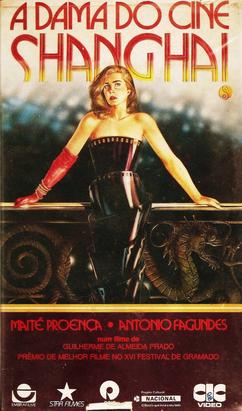
The Lady from the Shanghai Cinema is a 1988 Brazilian thriller film directed by Guilherme de Almeida Prado. The film borrows some references from Hollywood films noirs of the 1940s, mainly Orson Welles' The Lady from Shanghai; its name is a play with Welles' film.
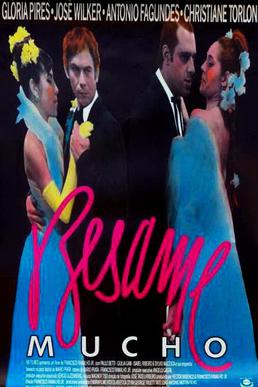
Besame Mucho is a 1987 Brazilian romance drama film directed by Francisco Ramalho Jr., based on the play of the same name by Mário Prata.

Mango Yellow is a 2002 Brazilian drama film directed by Cláudio Assis. It stars Matheus Nachtergaele, Jonas Bloch, Dira Paes, Chico Díaz, and Leona Cavalli as working-class people who engage in amorous and social encounters, with most of the action taking place in a hotel and a bar. The directorial debut of Assis, the film was partially inspired by his previous short film Texas Hotel. It was filmed on a low budget in the suburbs of Pernambuco.
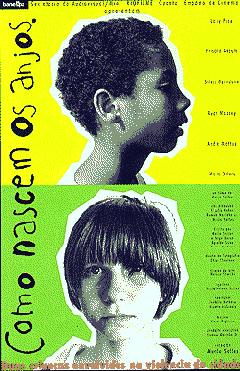
How Angels Are Born is a 1996 Brazilian crime drama film directed by Murilo Salles. It stars Priscila Assum and Silvio Guindane as two Rio de Janeiro favela's children who become involved in the kidnapping of an American man played by Larry Pine. How Angels Are Born has received awards at film festivals, and has been well received by critics.

Ana Luiza Machado da Silva Muylaert, known professionally as Anna Muylaert, is a Brazilian film and television director, producer and screenwriter.

Alê Abreu is a Brazilian film director and screenwriter. Sírius, his first short film, debuted at the 1993 Anima Mundi as the only Brazilian animation that year. It won the Best Film Award at the Festival de Cine para Niños y Jovenes and was also screened at the Mostra Internacional de Cinema São Paulo and at the section Animation for Children of the Hiroshima International Animation Festival. His second short film, Espantalho, released in 1998, won the 3rd Best Brazilian Animation at the Anima Mundi, the Best Art Direction Award at the Brazilian Film Festival of Miami, and was nominated for Best Animated Feature at the 1st Grande Prêmio Cinema Brasil. His first feature film, Garoto Cósmico, debuted at the 2007 Anima Mundi. In 2013, at the Ottawa International Animation Festival, he released his second film, Boy and the World. This film became an international success, was nominated at the 88th Academy Awards for Best Animated Feature, and won several prizes, including the Best Feature Film at the Annecy International Animated Film Festival and the Best Animated Feature-Independent at the Annie Awards.

Ivo Müller,, is a Brazilian film and stage actor. Müller started his career in short films and school theater, and appeared in the 2012 independent Portuguese silent film Tabu, considered one of the 21's Century 100 greatest films according to the BBC.
Gustavo Nasr is a Cinematographer and Film Director from Rio de Janeiro, Brazil. His first film as a cinematographer and director, Aqueles Dias, starring Cynthia Falabella, exhibited at the Clermont-Ferrand International Short Film Festival market, had won 11 Awards and Nominations nationally and internationally, including the "Best Cinematography Language" at the Amazonas Film Festival. He had also won the award of "Best Cinematography" at the Guarnice Festival.

Susana Schnarndorf Ribeiro is a Brazilian Paralympic swimmer. In 2005, after a lengthy triathlon career, at the age of 37, Schnarndorf began to experience the first symptoms of a mysterious degenerative disease that was later diagnosed as multiple system atrophy (MSA). After a break from professional athletics, Schnarndorf returned to the sports world as a swimmer and is presently a member of the Brazilian Paralympic Swimming Team.
The It's All True – International Documentary Film Festival, also known as É Tudo Verdade, is an international film festival held annually in Sao Paulo and Rio de Janeiro, Brazil.
References
- 1 2 "Guia Ambrosia para o Festival do Rio 2013". Vírgula (in Portuguese). Universo Online. September 27, 2013. Archived from the original on November 4, 2013. Retrieved June 3, 2014.
- 1 2 "MostraRio e Rio Cine são fundidos num único festival". Folha de S.Paulo (in Portuguese). Grupo Folha. March 4, 1999. Retrieved June 3, 2014.